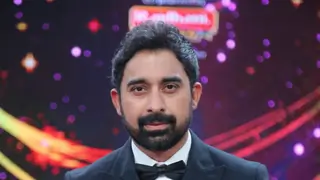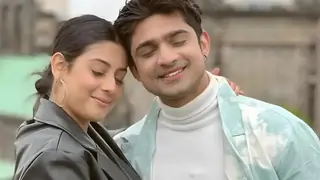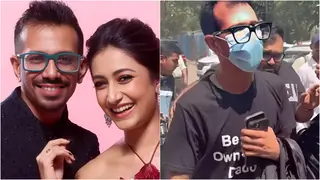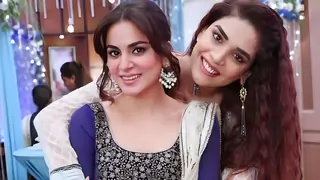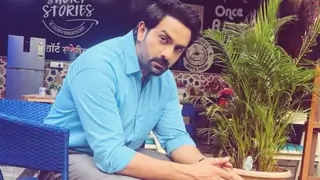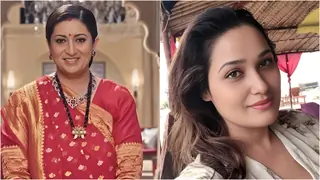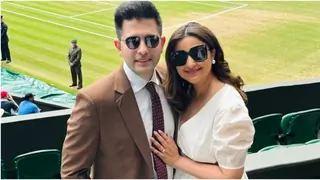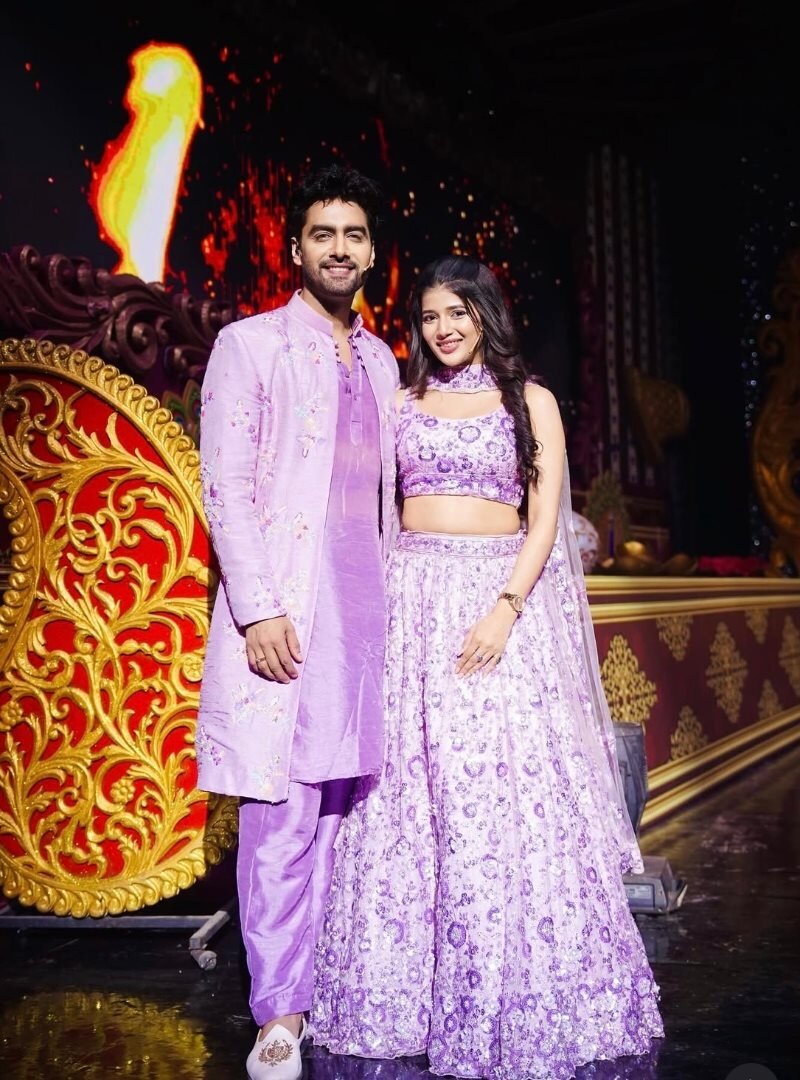Mahabharata: What is the underlying symbolism of Draupadi being married to all Five pandavas?
Cross posted from my Quora page
Disclaimer: The following is my interpretation (not explanation) of the events and its consequences. It is not meant to be misogynistic and it is not intended to hurt anyone's feelings and belieafs.
Before going into the symbolism of Draupadi being married to 5 Pandavas, lets dig down some "itihaas" (history) and try connecting the dots.
Draupadi's mission and Drupad's Intent
Drupad was humiliated by Drona, his land was taken and he was made captive. To avenge this, he resolved to gave birth to a son (Dhristyadhuymna) who would kill Drona and a Daughter who would enter the Kuru family and divide it.
Hence, Draupadi was born.
Her mission was to create jealousy among the first cousins, the Kauravas and Pandavas, which will make her a cause for war (through humiliation) and let the brothers kill other brothers. Drupad's classical example of Divide and Conquercan only be achieved by a woman whose beauty has no match on this planet.
Remember how Draupadi insulted Karna in her "swayamwar sabha" - the ancient practice among Indian royalty where a princess could choose her own groom among eligible contestants based on their merit in her eyes. Calling him a "soot putra" (son of a chariot maker artisan) and preventing him from participating in her wedding competition was adharma (not as per natural law), because Karna was a kshatriya (warrior), and denying participation of a kshatriya in an open contest is "adharma".
Remember how Draupadi tells Duryodhana "The son of the blind is also blind" (Duryodhana's father and the reigning king of Hastinapur, Dhritarashtra, was blind since birth), thereby insulting the king and the senior prince of Hastinapur in public - "adharma" again.
She decides to marry a brahmin priest (Arjuna in disguise), thereby insulting the royalty yet again.
This naturally caused Duryodhana to get thoroughly enraged and he took it as a personal insult.
Marriage with 5 Pandavas
Pandavas were the first cousins to the reigning Kauravas, the ascribed sons of Pandu, the younger brother of the blind king Dhritarashtra. And Kunti, the mother of the Pandavas, was no ordinary woman.
She was said to be the sister of Vasudeva, the father of Krishna. She was therefore a lady with supernatural powers and knew family politics very well.
Kunti knew that if Draupadi was married to only one of her sons (Arjuna), the other brothers would be jealous of him. This had to do with LUST and her beauty should not divide the united power of the Pandavas. Hence, she did not withdraw her order of "sharing the thing" even after she discovered that "the thing" her sons had brought home was a princess.
The gods (Krishna ?) knew well ahead of time that Draupadi would be disrobed in public and if Draupadi was married to only one Pandava, it wouldn't give rise to the rage for revenge in the hearts of the other Pandavas. So it was rather astrategic move to let Draupadi marry all the 5 men, so all the men could burn with the rage in their hearts.
So it was Draupadi who bound the powerful earthly elements together and made them united to fights until "dharma" prevailed.
Polygamy Vs Polyandry
In early societies with high infant mortality rate and short lifespans, polygamy was preferred to polyandry. When a man had many wives, the family could have more children than a woman having many husbands. This value to fertility is one of the reasons why women were usually kept in seclusion and safety, a practice that eventually led to the throttling of women's rights. But polyandry had benefits too -sharing a wife assured sharing of property and no division of the land.
One hears of co-wives fighting over their husband's affection. Did the husbands fight over Draupadi? The epic does not explicitly discuss this, but the possibility of jealously tearing the brothers apart is alluded to repeatedly
Symbolism of Draupadi being married to 5 Pandavas
Arjuna was the reincarnation of "Nara"
Krishna was the reincarnation of "Narayana".
Draupadi was the reincarnation of "Lakhsmi".
The goddess (Draupadi) was married to the earthly counterpart of other gods (Yama, Vayu, Indra and the Ashwini twins). This completed the force, so that the gods could together take on "adharma".
There are two earthly elements. Prakriti or nature (nari / woman) and Purush or the motive force (nara / man)
The relationship of the goddess with Narayana expresses the changing relationship of nature (prakriti) with the motive force (purush) over time.
As the first quarter of the world cycle (yugas) drew to a close, marking the end ofinnocence, the goddess was Renuka, mother of Vishnu who took the form of Parashurama on earth.
As the second quarter of the world cycle drew to a close, marking the end ofyouth, the goddess was Sita, wife of Vishnu who took the form of Rama on earth.
As the third quarter of the world cycle drew to a close, marking the end ofmaturity, the goddess was Draupadi, sister/friend of Vishnu who took the form of Krishna on earth.
This shows the gradual decline of Nari (prakriti), or the fact the world is dying a slow death .. the beginning of fourth and the last Kali Yuga over a period of time, marking man's inability to save the world from tragedies.
Acknowledgement: Some content is influenced from Devdutt Pattanaik's "Jaya"
EDIT
Here are some facts about Draupadi which might be of interest.
1. According to many folk tales, Draupadi was secretly in love with Karna. She admits to Krishna that she had a soft corner for him. Folklore states that Krishna had sent the perfect husband for her (Karna) - one who would love and protect her all her life and be faithful to her. But she rejected him because of his apparent low birth. So she ended up marrying a man who shared her with his brothers and failed to protect her when she needed him the most.
Read my answer here - Amit Banerjee's answer to Mahabharata: Was Draupadi in love with Karna?
2. Of all the Pandavas, Bheema loved Draupadi the most and it was Bheema who protected her every single time. Bheema took a vow that he would slay all the 100 Kauravas. In the horse dance of Tanjore and some other folk dances in South India, the riders of dummy horses represent Bhima and Draupadi.
3. Draupadi, in her lifetime, uttered just a single curse. She cursed a dog. Here goes the story according to a Punjabi folklore:
Pandavas had agreed that only one brother must enter Draupadi's chamber at a time and during that time no other Pandava must enter her chamber. The brother who entered her chamber was to keep his shoes outside the door (a tradition which is still followed). The violation of this condition had a strict penalty: if by any chance a brother entered her chamber while she was engaged with another one of them, the offender was to leave immediately for year long exile as punishment.
One day when Yudhistira was in Draupadi's chamber, a dog stole his shoes from outside the door. Arjuna, unaware of this, entered the chamber and saw his elder brother in Draupadi's arms. According to the agreement, Arjuna had to leave for the exile. Since Draupadi favored Arjuna the most, she became angry with the dog that had stolen Yudhistira's shoe, thereby cursing all dogs - "All the world will see you copulate in public, stripped of all shame."
As it happens, a dog is the only animal which copulates just about anywhere in public.
4. Draupadi's effect on men is a recurring theme on Mahabharata. Besides, Duryodhana, Dussashana, Jayadratha, Kichak, there are other men who lusted after her. What is Mahabharata trying to tell us? Don't be besotted by your looks, for they are likely to go against you.
5. Draupadi's vessel was like Lakhsmi's "akshaya patra" (similar to the Greek cornucopia), always full of food. Across India, the term "Draupadi's vessel" means a kitchen that is overflowing with the best of foods. Such a kitchen is the mark of a good homemaker (she is sometimes referred to as "Annapurna"). Mahabharata shows usthe value of a good homemaker and that women should not be objectified for "LUST" alone.
6. Draupadi did not attend the infamous dice game where the Pandavas gambled away their kingdom and all their earthly possessions to the Kauravas, and this was the only time in the epic when the Pandavas took decisions alone - without their mother (Kunti), wife (Draupadi) or a friend (Krishna).
And they failed miserably.
The noblest of men (Yudhistira), the intelligent (Sahadeva), the powerful (Bheema), the skilled (Arjuna) and the handsome (Nakula) all fell flat on their face. WHY? They ignored their wife.
7. Draupadi's insensitive comments about Duryodhana's parents is presented as the reason why she was humiliated later in her life. This event is narrated as a warning to people not to make fun of disabilities (especially elders).
8. In Tamil tradition, Draupadi is considered a Goddess and one "Muttal Ravuttan" is her loyal guard and gatekeeper. He is said to be a king whose daughter married Yudhistira. It was well known that Draupadi would not let any of the other wives of the Pandavas stay in the palace. Muttal actually offered to become Draupadi's servant for all eternity just to ensure that his daughter would be an exception to Draupadi's rule.
In other narratives, Draupadi allows only Subhadra to enter the palace as she was the sister of Krishna. Krishna was the "sakha" (best friend) of Draupadi who protected her modesty when she was being disrobed in the court room by the elder Kaurava prince Duryodhana.
9. Draupadi bore the five Pandavas five sons.
Prativindhya ( son of Yudhistira), Satsoma (son of Bheema), Shurtakirti (son of Arjuna), Shatanika (son of Nakula), Shrutasena (son of Sahadeva).
All of her sons died in the hands of Ashwathamma, who also happens to have killed her twin brother (Dhristadhuymna).
Mahabharata is trying to tell us that "Every action has an equal an opposite reaction". And that "a war of hatred" is not the solution.
Drupad insulted Drona. Drona, with the help of Kuru family conquered Drupad. To avenge this, Drupad sired Draupadi and her twin brother. In turn Draupadi was instrumental in killing Drona (her twin brother Dhristyadhuymna actually did the deed) and divided the Kauravas and Pandavas. Drona's son Ashwathama then killed her brother and all her sons. Karma comes back, over and over again.
10. Only two Kauravas protested in support of Draupadi while she was being disrobed in the court room. Vikarna and Yuyutsu. Yuyutsu was the most learned Kaurav and secretly admired the Pandavas and Draupadi. He later changed sides and joined the Pandava army.
Since Bheema had made a vow to kill all the 100 Kauravas, Draupadi tried her best to protect Yuyutsu from Bheema (the only Kaurava brother who protested against her humiliation). Yuyutsu was the only Kaurav son who was not killed in the fratricidal war despite Bheema's vow and he was subsequently crowned the king of Indraprastha (Karma comes back again).
11. Draupadi is depicted as rather helpless in Mahabharata. However, she has been shown to be reborn as different heroines in her later births such as Virashakti (Tamil folklore), Bela and Alha.
12. Draupadi was the first to fall from the Himalayas when Pandavas were on their final pedestrian journey to heaven. When Bheema asked Yudhisitira why she fell, he replied "Though she was supposed to love all of us equally, she favored Partha (Arjuna)."
Thanks to Som Bhatta for editorial suggestions and corrections.
_________________________________________________________
EDIT 2: Thanks for all the upvotes, I couldn't resist but add the following interpretation and comparison.
Draupadi's situation is synonymous in today's society.
A Nari (Prakriti) represents "The organization"
A Nara (Purush) represents "The Leader" (CEO, for example)
After the leader has done his job, the organization takes over to create the "PRODUCT" (Offspring). The Leader needs the organization as much as the Organization needs the leader.
Now coming to Draupadi's situation in the modern context.
Imagine a situation where an organization has multiple CEO's. Each CEO has a say and equal stake in the organization. What will happen to the organization which is being governed by multiple CEO's? It is destined to fall and humiliate itself?
Also, Kauravas represent a society that is is highly bureachratic.
RULES beome more important than principles (for example, All the rules are upheld but people still don't have food. A women is disrobed but noone is arrested.)
Hence, in a society where RULES become more Important than Principles and the Organization falls in the hands of multiple leaders, there will be "chaos"
Example, Duryodhana never violates the rules. Not a single time. He always goes by the rule book. But he is constantly violating the principles, which leads to his death.
Mahabharata is trying to tell us "Forget Rules, focus on the principles. Principles are more important, rules were made and manipulated by man."
Whenever you are stuck in your life, remember this lesson from Mahabharata -
"It is the principle that matters, not rules."





















